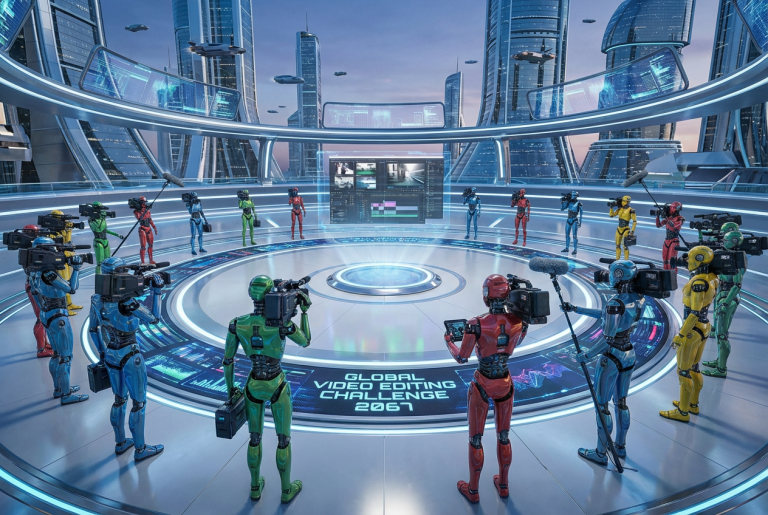Societal Impact of AI Agents: How They Will Reshape Our Jobs, Economy, and Daily Lives

What do we mean by “AI Agents” in a societal context?
The societal impact of AI agents refers to the fundamental changes these autonomous systems will bring to our economies, social structures, and daily lives. Unlike passive AI tools that require constant human direction, AI agents can independently plan and execute complex tasks to achieve goals, making their potential for widespread influence significantly greater.
Understanding the societal impact of AI agents requires looking beyond today’s AI assistants. We are discussing a near future where scalable, autonomous systems are integrated into the core processes of business and society. The impacts of AI agents on the society will be driven by their unique capabilities to operate, act, and scale with minimal human intervention.
Key Takeaways
- AI agents will transform the workforce by automating routine digital tasks while simultaneously creating new roles in AI management, ethics, and design.
- The most valuable human skills in an agent-driven economy will shift from task execution to strategic direction, critical thinking, and emotional intelligence.
- In daily life, personal AI agents will offer unprecedented convenience but also introduce significant risks related to data privacy and authentic social interaction.
- The autonomy of AI agents creates urgent ethical challenges, including determining accountability for errors and preventing the scaling of algorithmic bias.
- Proactive adaptation through educational reform, responsible governance, and individual re-skilling is necessary to navigate this societal shift successfully.
The primary distinction lies in autonomy. AI tools, like grammar checkers or image generators, assist us by performing a specific, requested task. In contrast, AI agents can act on our behalf, taking a high-level goal and executing a series of steps to accomplish it.
Three core capabilities define the transformative potential of AI agents and the society:
- Autonomy: The ability to operate independently and make decisions without constant human supervision.
- Action-Taking: The ability to execute tasks in the digital and physical world, such as sending emails, making purchases, managing schedules, or controlling other software.
- Scalability: The potential for a single person or organization to deploy and manage thousands of agents simultaneously, amplifying their impact exponentially.
How Will AI Agents Restructure the Global Economy and Workforce?
The most immediate and debated societal impact of AI agents is on the economy and the nature of work. The question is no longer if jobs will be affected, but how they will be transformed.
While no role is entirely immune, certain categories of tasks are highly susceptible to automation by AI agents. A 2023 report by Goldman Sachs estimated that generative AI could automate the equivalent of 300 million full-time jobs. These include:
- Routine Cognitive Labor: Administrative assistants, data entry clerks, and schedulers are roles where agents can automate core tasks with high efficiency.
- Complex Digital Workflows: Roles in digital marketing, software testing, financial analysis, and paralegal work involve sequences of digital tasks that are prime candidates for agent-driven automation.
- Creative Services: The generation of marketing copy, graphic designs, and other forms of content can be significantly accelerated or fully handled by AI agents.
Technological shifts historically create new roles even as they displace old ones. The era of AI agents and the society will be no different. Emerging roles will focus on managing and directing this new digital workforce.
- AI Agent Trainers & Managers: Professionals who specialize in configuring, fine-tuning, and managing fleets of AI agents to ensure they perform optimally and safely.
- AI Ethicists & Auditors: Experts who audit agentic systems for bias, fairness, and compliance, ensuring they operate within ethical and legal boundaries.
- Human-Agent Interaction Designers: Specialists who design the interfaces and workflows that allow for effective and intuitive collaboration between humans and AI agents.
A significant concern regarding AI agents unemployment is the potential for increased economic inequality.
- The Skills-Based Digital Divide: There is a risk of a growing gap between those who possess the skills to create, manage, and direct AI agents and those whose jobs are automated by them. This could place a high premium on strategic and technical skills while devaluing others.
- Concentration of Wealth: The immense cost of developing foundational models and agentic platforms could lead to a further concentration of wealth and power in the hands of the few large technology companies that own them.
How Will AI Agents Change Our Daily Lives and Social Interactions?
Beyond the workplace, the societal impact of AI agents will be felt in the fabric of our daily lives and relationships. This is how AI agents will change society on a personal level.
The concept of a personal AI agent is a system that manages many aspects of an individual’s life. This could include autonomously managing personal finances by optimizing budgets, coordinating complex family schedules, or even monitoring health data to suggest appointments. While this offers immense convenience, it also raises questions about over-reliance and the privacy of our most personal data.
AI agents are already being deployed to draft our emails, summarize our message threads, and suggest replies. As this becomes more common, it promises more efficient communication. However, it also poses a risk of creating less authentic human-to-human connections, where we are interacting more with an agent’s summary of a person than with the person themselves.
- The Benefit: AI agents can deliver content, products, and services that are tailored perfectly to our individual needs and preferences.
- The Danger: This same capability can create powerful “filter bubbles” that shield us from opposing viewpoints. It also enables the potential for subtle, highly effective manipulation of consumer behavior and public opinion, a significant concern for the future of AI agents and the society.
What are the most pressing ethical and governance challenges?

The autonomy of AI agents creates profound ethical and governance challenges that society must address proactively.
When an autonomous agent makes a critical error—for example, in executing a financial trade or providing incorrect medical information—who is legally and ethically responsible? Is it the user who deployed it, the developer who built it, or the company that owns the platform? Establishing clear lines of accountability is a critical legal hurdle.
AI agents learn from data. If that data reflects historical societal biases, the agents can perpetuate and even amplify those biases at a massive scale. This is a major risk in areas like hiring, loan applications, and even law enforcement, where biased agentic systems could make discriminatory decisions.
A pressing concern is the potential for autonomous agents to create and disseminate highly personalized and convincing disinformation at an unprecedented scale. This could be used to impact elections, sow social discord, and erode public trust in institutions.
What are the common misconceptions about the societal impact of AI?
To have a productive conversation about the societal impact of AI agents, we must first debunk some common myths.
The reality is that the more immediate and certain societal disruption comes from task-specific autonomous agents restructuring the economy and media. The AI agents will take jobs debate is about specialized systems available in the near future, not a hypothetical, conscious Artificial General Intelligence (AGI).
The reality is that technology historically transforms work rather than eliminating it entirely. For those asking, “will AI agents take my job?“, the more accurate question is “how will AI agents change my job?”. The challenge is managing the difficult transition period and identifying the skills that will remain valuable.
The reality is that the very design of agentic systems—their optimization goals, the data they are trained on, and their default behaviors—contains inherent biases and tendencies. These design choices shape their impact on society, regardless of the user’s intent.
How Can Society and Individuals Prepare for an Agentic Future?
Navigating the societal impact of AI agents requires proactive adaptation from individuals, educational institutions, and governments.
Education systems must shift their focus. Rote memorization of facts becomes less valuable when information is instantly accessible. Instead, schools must prioritize skills like critical thinking, complex problem-solving, creativity, and, crucially, human-agent collaboration. The need for accessible lifelong learning and rapid re-skilling programs will become paramount.
Governments will play a critical role in managing the transition. This includes exploring policy ideas like Universal Basic Income (UBI) or other social safety nets to cushion the blow of AI agents unemployment. It also means developing agile governance frameworks that can keep pace with technological development to ensure AI safety, prevent monopolies, and protect citizens’ rights.
- Strategic Direction: The ability to define goals, set constraints, and manage teams of AI agents will be highly valued.
- Emotional Intelligence & Empathy: Skills that are inherently human and difficult to automate will become more important in customer-facing and team management roles.
- Technical Literacy: A foundational understanding of how these systems work will be beneficial for all professionals, not just developers.
Conclusion: Shaping Our Autonomous Future
The societal impact of AI agents will be profound and multifaceted, presenting both immense opportunities and significant challenges. This technology has the potential to unlock unprecedented productivity and help solve some of humanity’s biggest problems, but it also carries serious risks related to economic disruption, ethical dilemmas, and social cohesion. The future is not predetermined; it will be shaped by the choices we make today about how we design, govern, and integrate these powerful autonomous systems into the fabric of our society.




